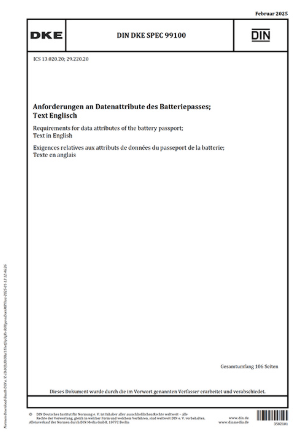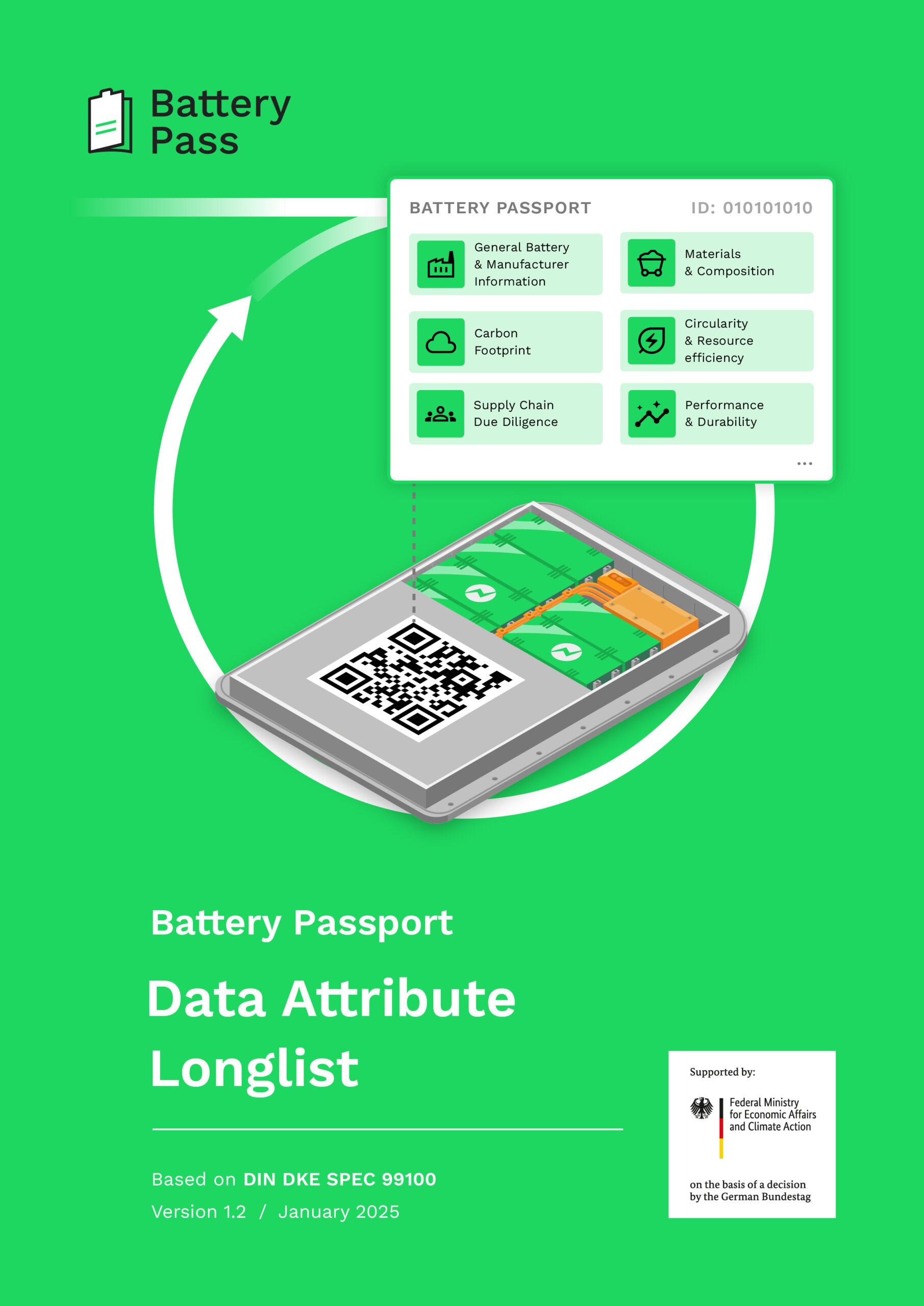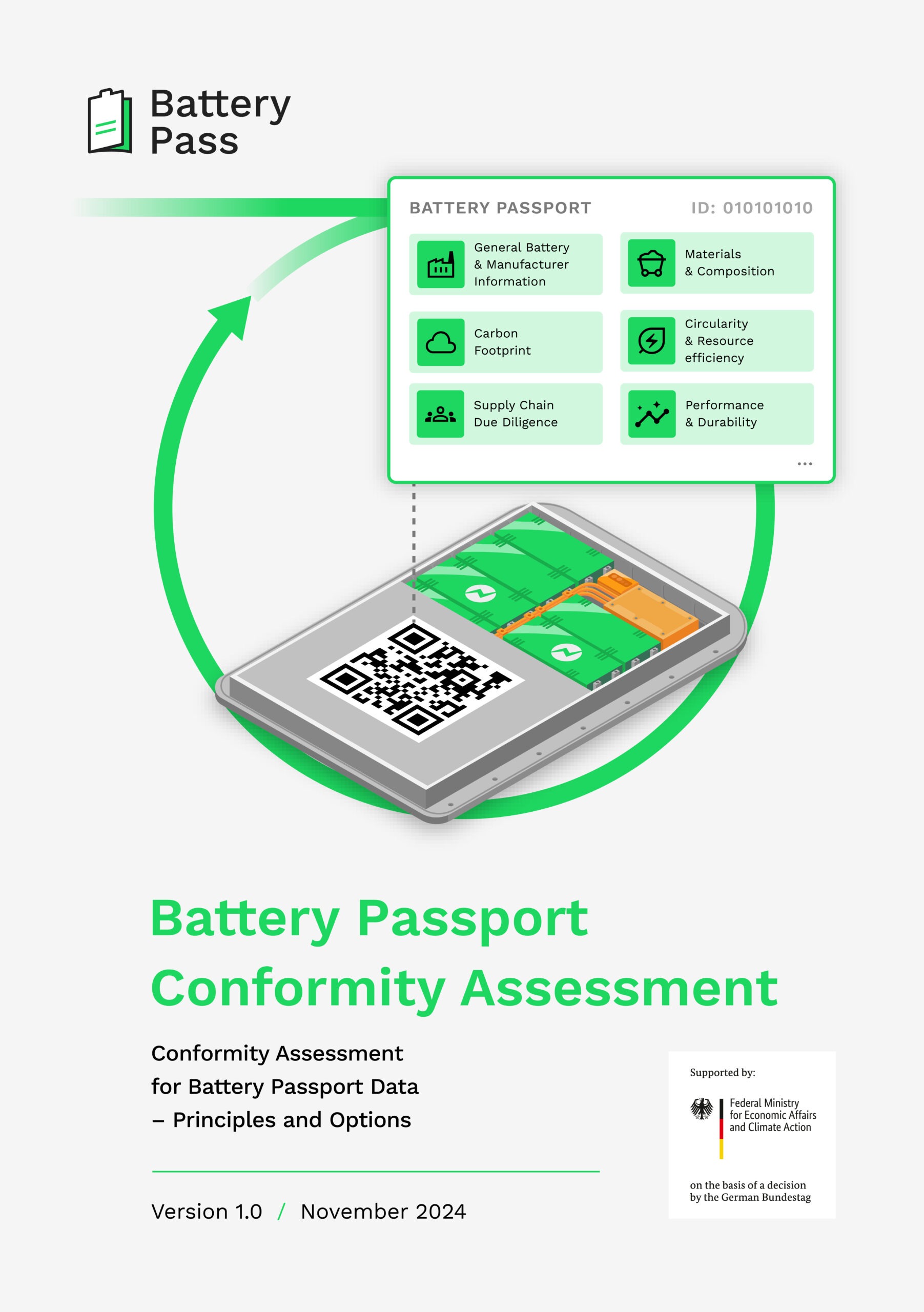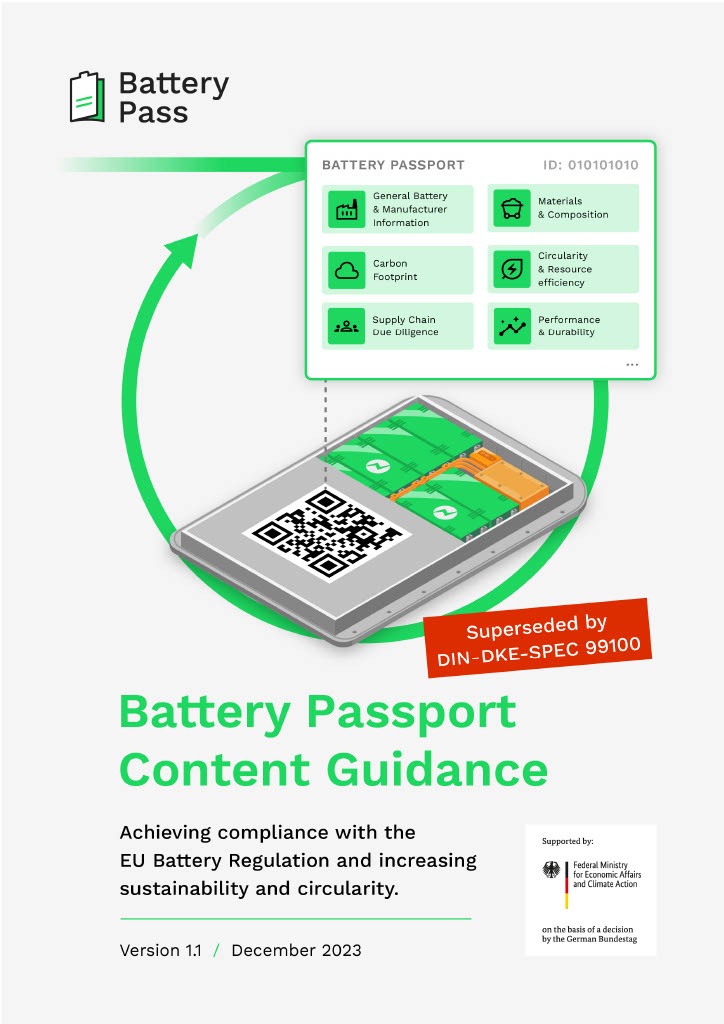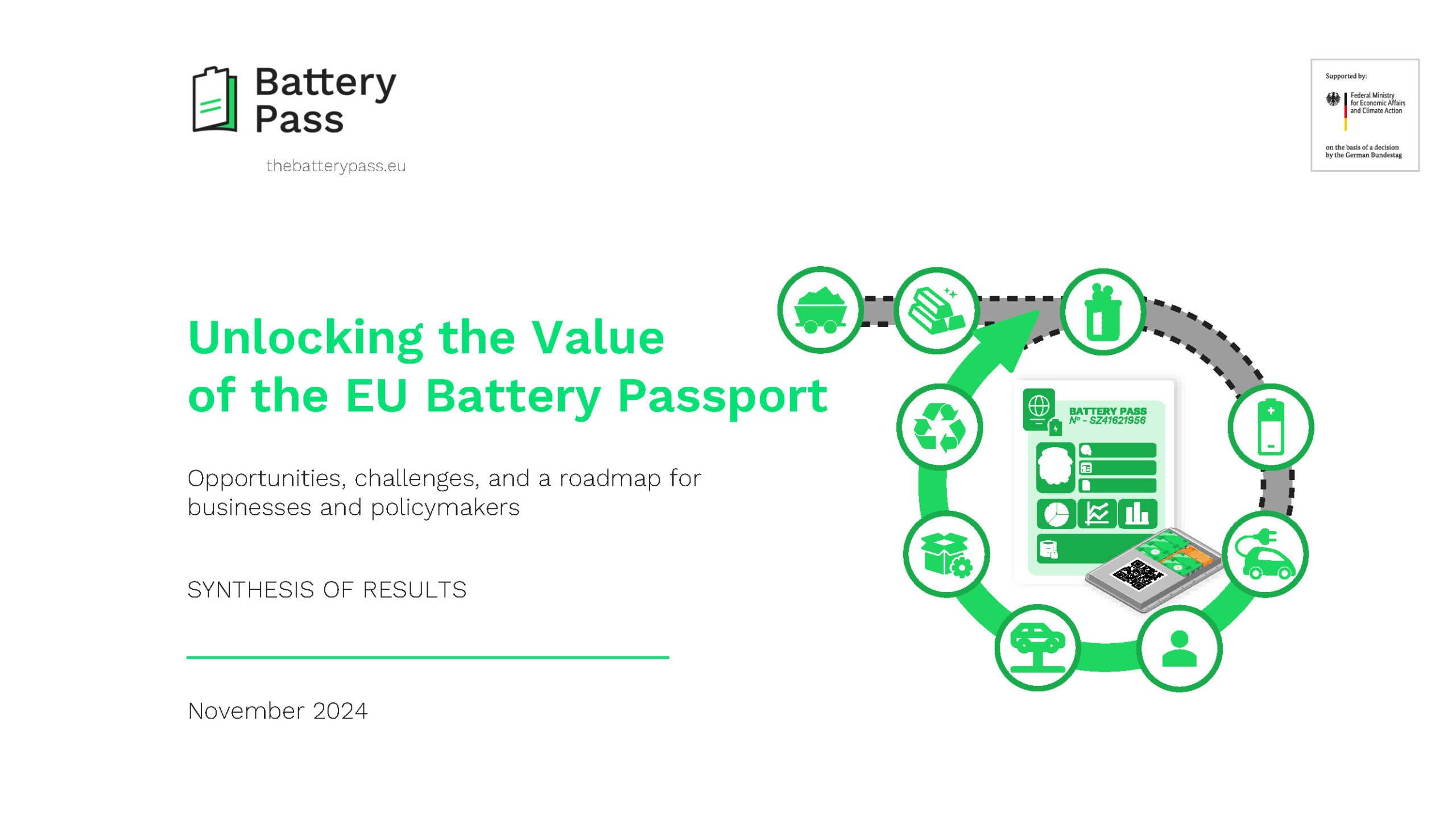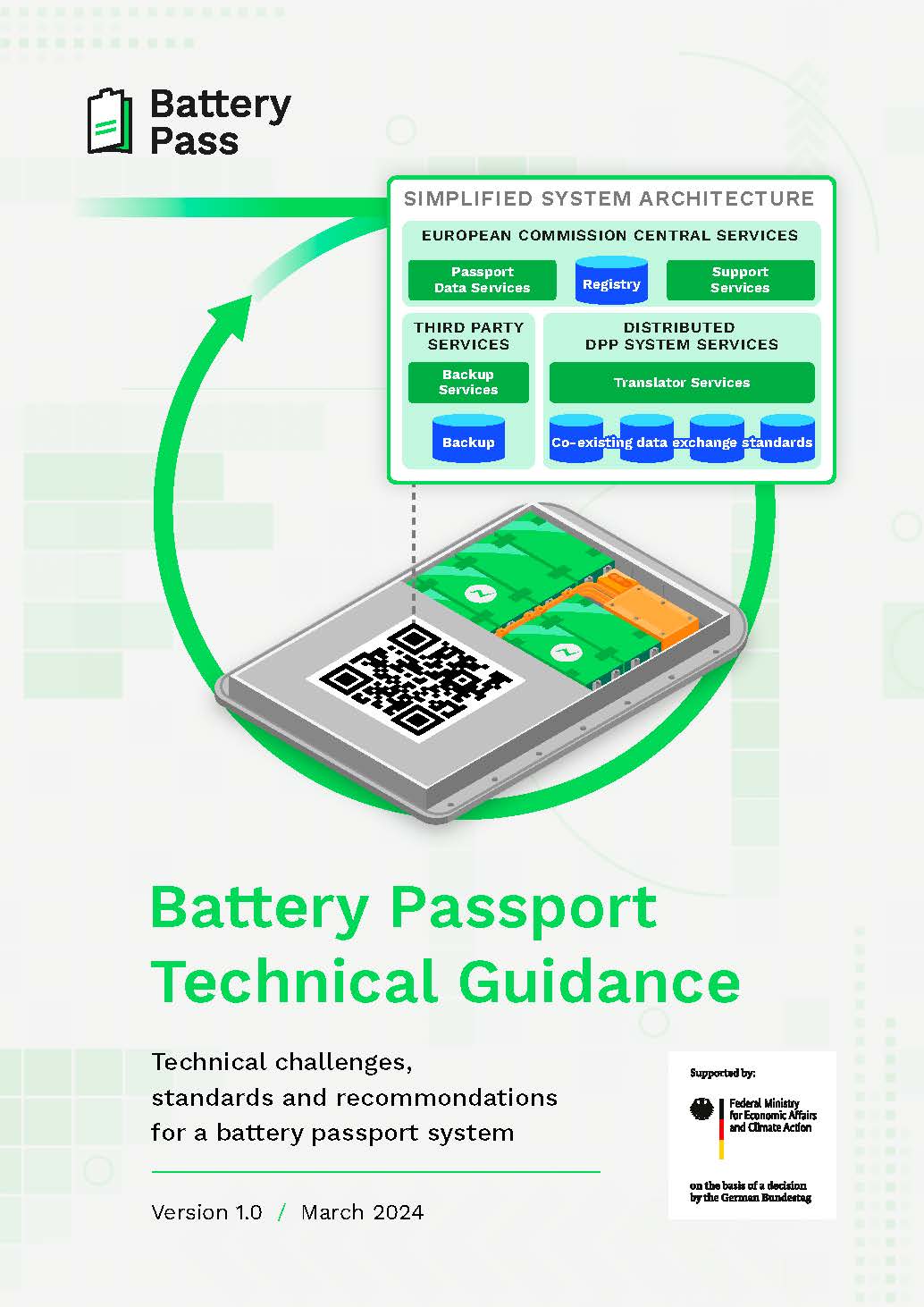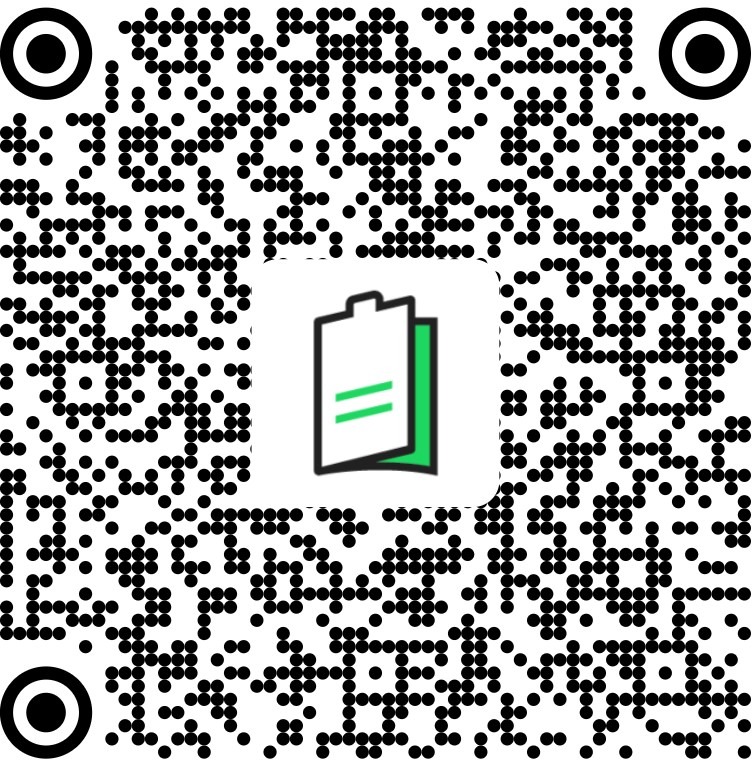Driven by the electrification of transportation and the deployment of batteries in electricity grids, global battery demand is expected to increase 6 fold by 2030 compared to 2022, and could be a €400bn sector by 2030.
Battery Pass was set up to support the implementation of the digital battery passport in line with the requirements of the new EU Battery Regulation. This entered into force in August 2023 and mandates a digital battery passport for all light means of transport batteries, industrial batteries above 2 kWh, and electric vehicle batteries placed on the EU market from February 2027.
Introducing battery pass
 Led by Systemiq Deutschland GmbH and co-funded by the German Federal Ministry for Economic Affairs and Climate Action (BMWK), the Battery Pass consortium comprises eleven partners and a broad network of associated and supporting partners from across the battery and automotive value chains.
Led by Systemiq Deutschland GmbH and co-funded by the German Federal Ministry for Economic Affairs and Climate Action (BMWK), the Battery Pass consortium comprises eleven partners and a broad network of associated and supporting partners from across the battery and automotive value chains.
Running from April 2022 for three years, the Battery Pass consortium is helping the European industry meet the requirements of the EU Battery Regulation, thereby supporting the implementation of the battery passport in Europe and beyond.
We do this through:
- Developing a perspective on battery passport content requirements, tracking along the EU Battery Regulation;
- Identifying the technical requirements for the data infrastructure and evaluating the suitability of existing options;
- Building a software and physical demonstrator; and
- Assessing the battery passport’s value for business, society and the environment.
Helping organisations get ready for the EU Battery Passport
Battery Pass Content guidance
The DIN DKE SPEC 99100: Requirements for Data Attributes of the Battery Passport, published in January 2025, defines the essential data attributes required by the EU Battery Regulation, along with voluntary additions. Developed by the Battery Pass consortium with DIN, DKE and public industry consultation, it builds on the Battery Pass Content Guidance (2023) to provide clear and practical support for compliance and circular economy goals.
The accompanying Data Attribute Longlist aligns with the standard and includes all data attributes required (and suggested) for the EU battery passport alongside definitions and further relevant data dimensions.
The Battery Passport Conformity Assessment, released in December 2024, highlights the importance of trustworthy data for circular value creation. It outlines principles and recommendations to ensure data accuracy and regulatory compliance, helping businesses address challenges and confidently implement the EU Battery Passport.
Showcasing the value of the battery passport
To help businesses, policymakers and consumers better understand the benefits and challenges of battery passports, Battery Pass has published ‘Unlocking the Value of the EU Battery Passport.’
First released in April and expanded in November 2024, the study presents new insights and practical recommendations for businesses and policymakers alike, detailing how battery passports provide clear benefits – from improved recycling efficiency and reduced costs, to increased transparency and sustainability. However, it also calls attention to two primary challenges: the substantial implementation efforts required (particularly for SMEs) and remaining regulatory uncertainties around data standardisation. We present practical next steps for businesses and policymakers to fully capture the strategic value of battery passports. In addition, the study includes separate analyses for Light Means of Transport (LMT) and industrial storage batteries, offering tailored insights for these sectors.
Battery Pass Technical Guidance and Software Demonstrator
In March 2024, we published the first battery passport technical guidance, which provides a comprehensive overview of the technical challenges and standards for the battery passport system. Critically, it also presents guidelines to help businesses prepare for their participation in the battery passport ecosystem.
This is complemented by a software demonstrator (demo link) which for the first time brings the concept of the battery passport to life through the entire lifecycle, and tests the technical feasibility of a digital product passport system.
The Battery Pass project has developed a first Data Model draft aimed at standardising and streamlining the exchange of battery-related information across the value chain. This is available on GitHub and is fully aligned with the DIN DKE SPEC 99100.
The Battery Pass Consortium

To maximise synergy with other initiatives, Battery Pass aligns and collaborates with the European Cirpass project, the Global Battery Alliance, Catena-X and others.
meet our team
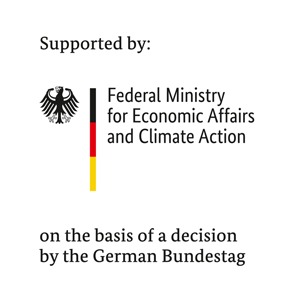
Battery Pass runs from April 2022 to April 2025. The project receives funding from the German Federal Ministry for Economic Affairs and Climate Action by resolution of the German Bundestag under grant agreement No BZF335.

